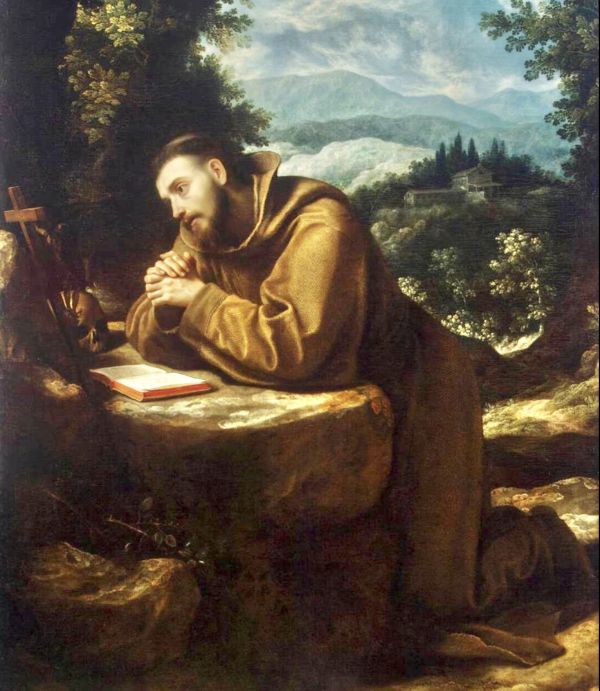Today's Gospel proclaims that God sent his Son to save men, not to humble them.
The distinction is: he who believes has the same life as the Eternal, but he who prefers darkness to Light excludes himself from the founding and happy relationship.
Francis, in his Letter to the Faithful, puts it this way:
"Those who do not wish to taste how sweet is the Lord and prefer darkness to light, refusing to keep God's commandments, are accursed" (FF 186).
The life of the Poor Man of Assisi, illuminated by Christ, was light in the Light:
"This was the way in which he infallibly foresaw even the fall of many, who seemed to stand upright, as well as the conversion to Christ of many sinners.
Hence it seemed as if he were now closely contemplating the mirror of eternal light, in whose wondrous splendour the eye of his spirit could see things physically distant as if they were present" (FF 1198).
The new man, made such by Grace, did the 'truth' reflected in his own works.
"In this way many began to recognise the truth of the doctrine, which the man of God with simplicity preached, and of his life. Some began to feel invited to penance by his example and to join him, in habit and life, leaving everything behind.
The first of them was the 'venerable Bernard', who, made a partaker of the divine vocation, deserved to be the firstborn of the blessed father, first in time and holiness" (FF 1053).
In the footsteps of the Lord, the Poverello's life became light for the dark time in which he lived.
"His intellect, free from the dense fog of earthly things [...] ascended lightly to the heavenly heights and plunged purely into the light.
Irradiated in this way by the splendour of eternal light, he drew from the uncreated Word what echoed in the words.
Oh, how different we are today, we who, enveloped in darkness, ignore even necessary things!
Francis, transformed by the Light, had fallen in love with it: his works attested to this.
The glow of the Word came to conform him to his specific connotation: to communicate to others the Truth confessed on the cross, so that the world might be redeemed and realise the Gift received.
"With the radiant rays of his life and doctrine he drew to the light those who lay in the shadow of death, like the rainbow shining through the bright clouds, bearing in himself the sign of the covenant with the Lord, he proclaimed to men the Gospel of peace and salvation" (FF 1021).
«But he who does the truth comes towards the light, that his works may be made manifest, for they are done in God» (Jn 3:21)
Wednesday 2nd wk. in Easter (Jn 3:16-21)












